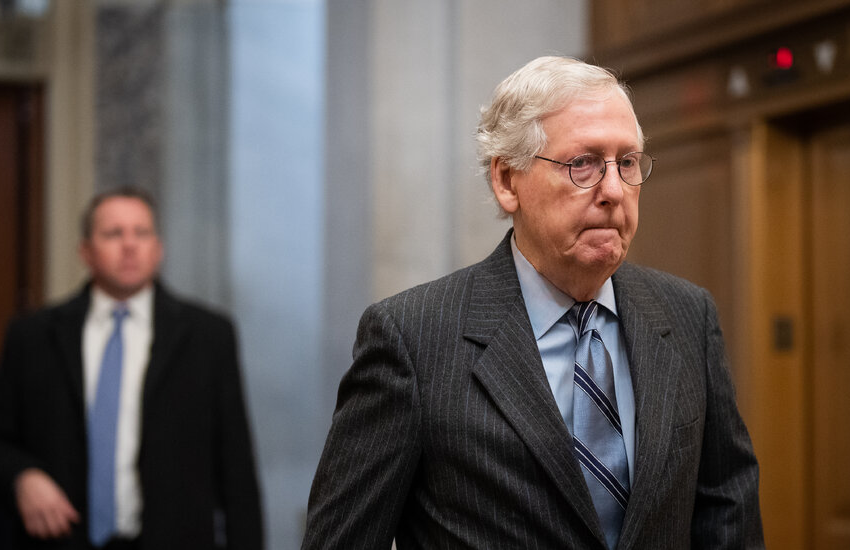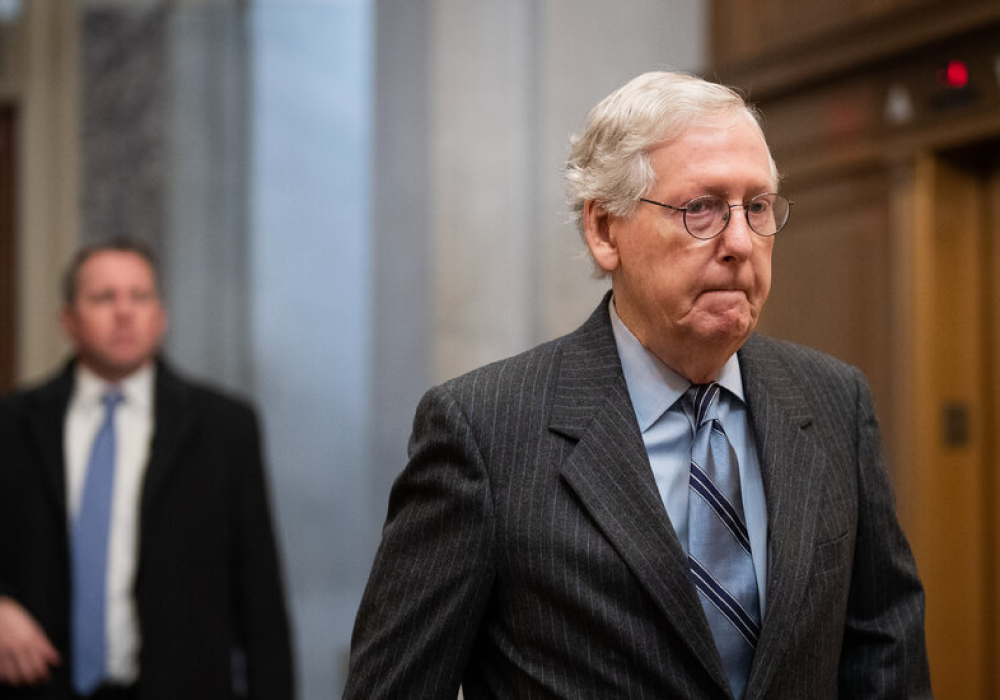The proposal is wrapped into legislation that would postpone scheduled cuts to Medicare, farm aid and other mandatory spending programs that were set to kick in next year. Once that bill becomes law, Senator Chuck Schumer of New York, the majority leader, would introduce separate legislation raising the debt limit. That is expected to pass with only Democratic votes in the 50-50 Senate, where Vice President Kamala Harris is empowered to break ties.
“Democrats always said that we were willing to shoulder the load at 50 votes to get this done, as long as it wasn’t a convoluted or risky process,” Mr. Schumer said. “Leader McConnell and I have achieved that.”
Mr. McConnell and 10 Republicans agreed in October to allow the Senate to take up a short-term increase to the debt limit, which ultimately passed with Democratic votes. But some of those senators — including Mr. McConnell, in a scathing letter to Mr. Biden — warned they would not acquiesce again.
But in November, Mr. McConnell and Mr. Schumer began quietly discussing alternatives.
“I’m confident that this particular procedure, coupled with the avoidance of Medicare cuts, will achieve enough Republican support to clear the 60-vote threshold,” Mr. McConnell said, predicting a Thursday vote for the bill in the Senate.
That would require 10 Republicans to join Democrats in advancing the measure, a prospect that Mr. McConnell discussed at lunch with members of his party on Tuesday afternoon. Some Republicans questioned it, arguing that passing new legislation to allow a fast-track debt ceiling increase would set a new and troubling precedent.
Senator Shelley Moore Capito, Republican of West Virginia, said she would have preferred that members of her party agree to allow Democrats to raise the debt ceiling with a majority vote. “But we have recalcitrant members that won’t do that,” she conceded, adding that she had not decided how she would vote.
Mr. McConnell and his allies have tried to persuade their Republican colleagues that the provisions averting scheduled cuts to Medicare and other programs make the legislation worthwhile. But it was not enough for the overwhelming majority of their Republican colleagues in the House.












